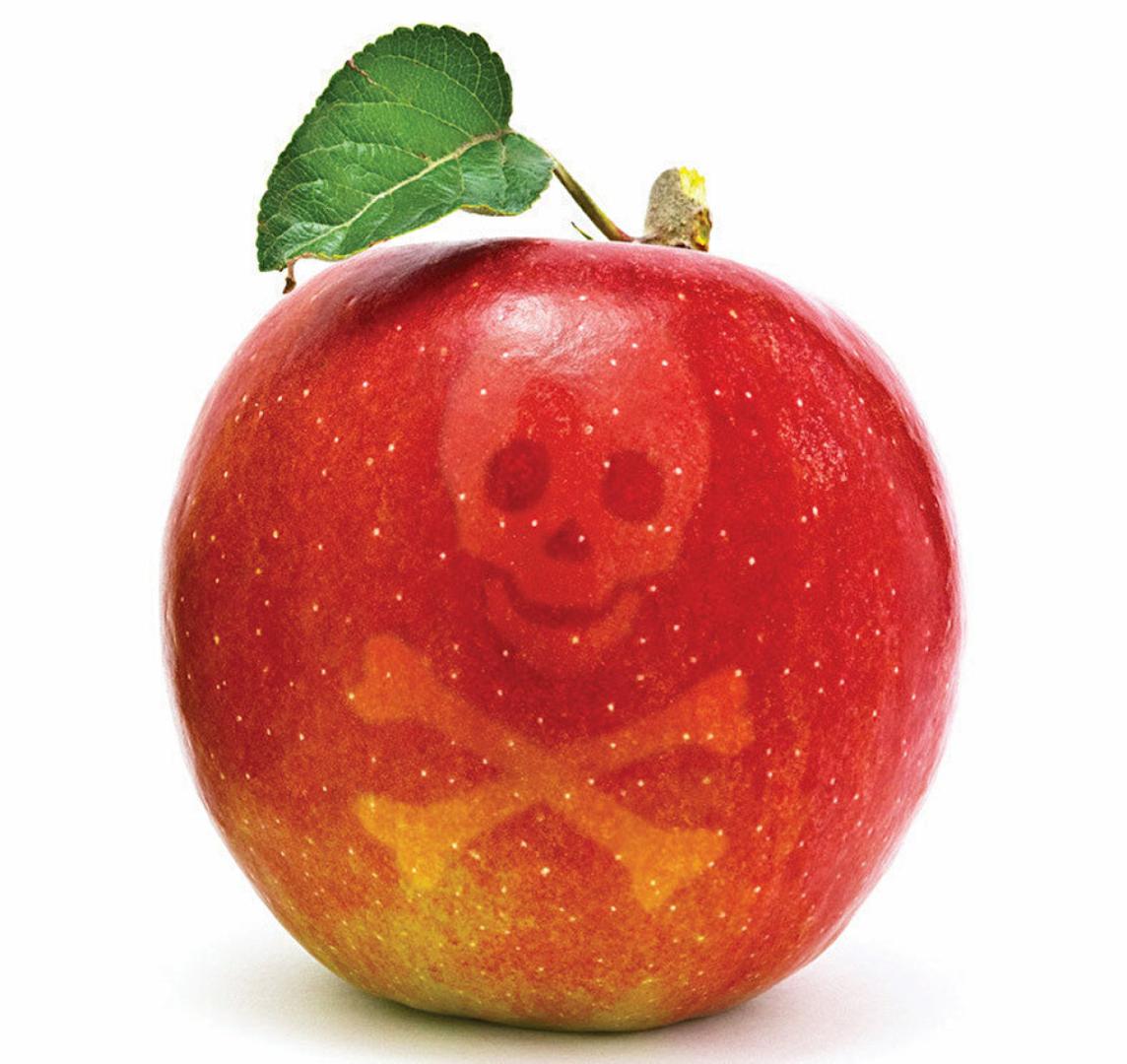
Did you know that the fruits and vegetables you consume for healthy eating can actually poison you? In this article, I will outline what we need to know about pesticides—a global threat to human health—in order to draw attention to this danger and to raise awareness about this vital issue.
If you knew that the fruits and vegetables we purchase from markets, greengrocers, or supermarket shelves might contain serious toxic chemicals that could harm our health, you would probably change your shopping and eating habits. However, since the public has not been sufficiently sensitized on this issue, many of us are being poisoned without even realizing it!
It has been determined that the chemical agents used in agriculture, when applied unconsciously and improperly, have serious effects on food. It has also been noted that some of these toxic residues cannot be removed through cleaning methods such as washing.
One of the main reasons for the return of exported fruits, vegetables, and even dried foods to Turkey—which we have frequently encountered on television, radio, and social media in recent times—is the detection of toxic chemical substances at levels that can affect human life in these products. Many products such as tangerines, lemons, oranges, pomegranates, tomatoes, squashes, quinces, apples, and pears have been sent back at the border due to the detection of high levels of pesticides during inspections.
So, what is a pesticide?
A pesticide can be defined as a toxic (poison) chemical agent used in agricultural production to protect plants from external factors such as bacteria, viruses, insects, rodents, fungi, unwanted weeds, and pests.
Commonly used types of pesticides:
Insecticides: Kill insects and pests.
Herbicides: Kill weeds and unwanted plants
Rodenticides: Kill rodents (e.g., mice)
Fungicides: Kill fungi and fungal spores
Bactericides: Kill bacteria
Larvicides: Kill larvae (maggots, caterpillars, etc.)
Pesticides are known as the most commonly used and effective method for pest control worldwide. They are widely preferred because they deliver quick results and are economical when used properly.
The indiscriminate use of pesticides creates serious problems for both humans and the environment. Improper use has led to cases of poisoning and illnesses. We can list the following factors as causes of these poisonings and diseases:
- The public’s lack of sufficient knowledge about pesticide use,
- Improper storage conditions for pesticides,
- Accidental contact and dispersal,
- Poisonings caused by factors such as improper maintenance and waste management, which have reached significant numbers.
Research has shown that ingesting pesticides through food can result in serious outcomes, such as liver and kidney disorders and cancer.
In America, 105 different studies have identified numerous links between pesticides and various types of cancer. The most significant among these include brain cancer, breast cancer, stomach cancer, leukemia, and prostate cancer. These studies have also emphasized that conditions such as learning disabilities and diabetes may be associated with pesticides.
The countries that use the most pesticides in the world, in order, are China, the USA, Brazil, Argentina, Canada, Ukraine, France, Malaysia, Australia, and Spain. These countries account for 75% of the chemical poison used.
In recent years, the Ministry of Agriculture and Forestry in our country has been undertaking important studies regarding the widespread use of pesticides around the world.
Significant steps are being taken toward integrated pest management projects and biological control methods in order to reduce pesticide use. Through these efforts, alternative solutions to pesticide usage are being promoted. In Turkey, within the scope of EU harmonization laws, 223 active substances have been banned and the use of safer alternatives has been encouraged.
According to reports, the amounts of pesticides used per hectare (kg) by the world average and by other notable countries are as follows:
World: 2.26
Turkey: 2.26
Canada: 2.42
England: 2.81
USA: 2.85
EU Countries: 3.2
France: 3.67
Germany: 4.14
Spain: 4.59
Italy: 5.38
Netherlands: 10.86
Although our country's usage rate is close to the world average, unfortunately, pesticide usage is not uniform across all provinces.
In the main provinces that supply our country’s vegetable and fruit needs, the rate of pesticide usage reaches very high levels.
These provinces are:
- Adana
- Antalya
- Manisa
- Mersin
- İzmir
- Aydın
- Bursa
- Konya
From these provinces, thousands of tons of vegetables, fruits, and dried foods are exported to countries around the world every year. In recent years, there has been a significant increase in reports of exported products being returned for not meeting international standards.
Among the returned products are peppers, tangerines, lemons, oranges, pomegranates, tomatoes, squashes, quinces, dried figs, apples, and pears.

In a study conducted for the year 2023, 215 items exported by Turkey to the EU were returned because they posed a health risk. This indicates that one out of every five products returned by the EU for health reasons originates from Turkey.
According to the Ministry of Agriculture and Forestry, the returned products are subjected to official inspections upon entering Turkey, and those that do not comply with regulations are not allowed entry. However, some experts and civil society organizations have expressed concerns that, due to insufficient and inadequate inspections, these products might end up being introduced into the domestic market.
As a result of all this information and research, it appears that by taking certain precautions regarding the problems that pesticides can cause, it is possible to reduce the risk to a minimum level. It is imperative that, especially the authorities, as well as producers and we as consumers, show sensitivity in this regard.
Türkçe: https://xsayfa.com/tr/olduren-zehir-pestisit
 selcukvarli
selcukvarli










There are none comment